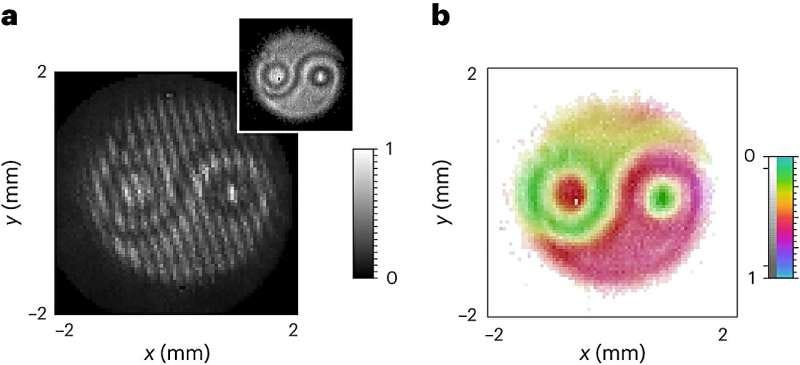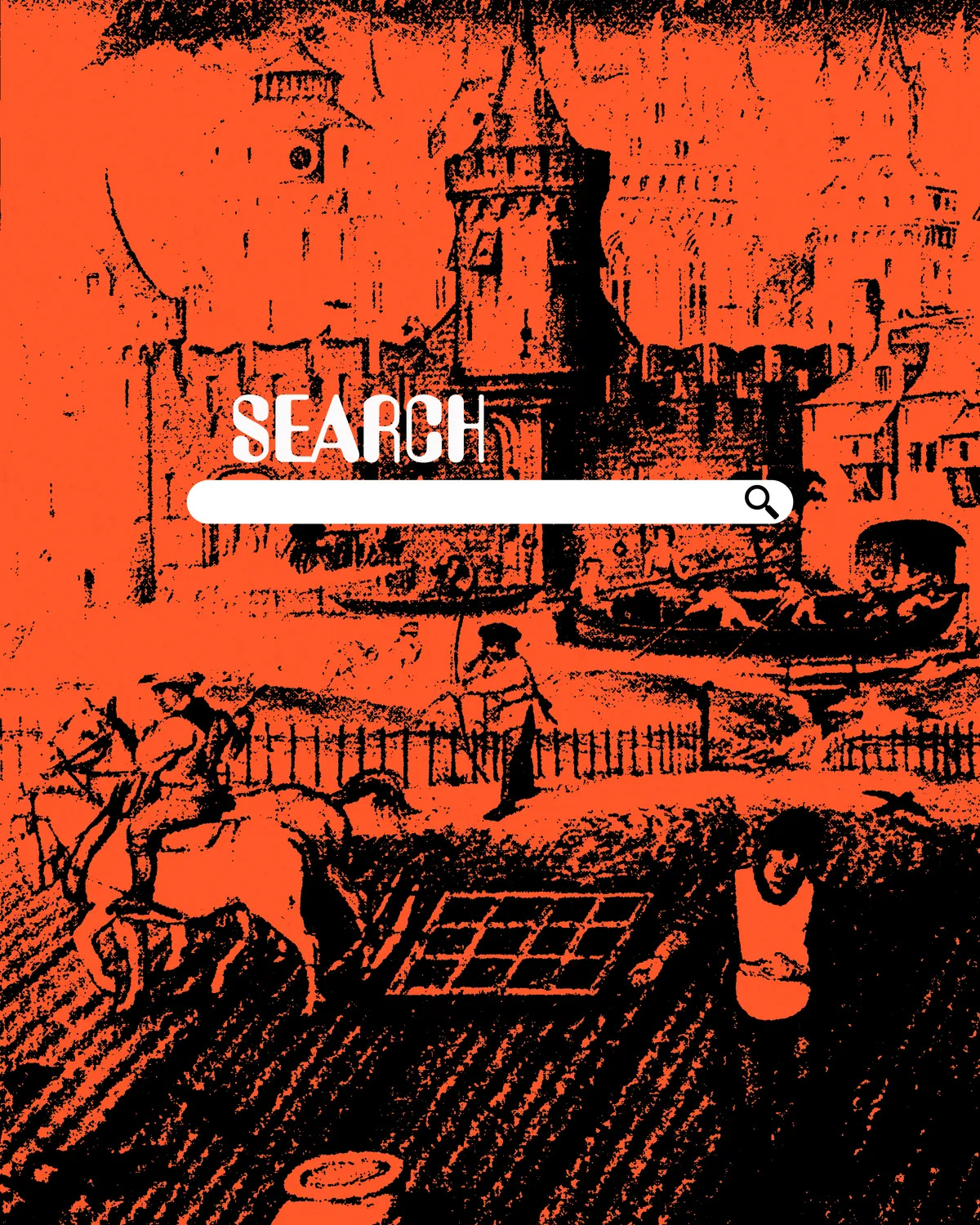🎠✨The Nexialist #0136
past lives & in-yun | implicate order & math tiling | quantum entanglement visualized | how tech changes the way we speak | power to peasants | digital feudalism
welcome to another weekly not-so-random cyber-pastiche, the nexialist
hey, you! i hope this list e-mail finds you well! this week, the algorithmic synchronicity was more fine-tuned than ever and showed some entangled brainsparks. not a lot, but just enough to maybe reframe something in your reality. my brain cells this week also have been less active than usual, so i’ll leave you with a short intro. enjoy this nexialist, and please remember to share 🫀✨
1 year ago » 🤘✨The Nexialist #0084 : Relax, Don’t Do It | Boy Harsher | Electronic Body Music | Post-Punk | ____Punk | The Quagmire | Popcorn
2 years ago » 🇧🇷✨The Nexialist #0035 : The Brazilianization of the World | Being Black in Brazil | Greengo Dictionary | The Guarani Language | Pão de Queijo | AmarElo | Propaganda Feud | Brazilian Beauty
🎠past lives & in-yun
this week, juan and i went to watch another one of A24’s visceral stories, and it made me feel so many things. past life about all those “what could have beens” told in such an honest, sensitive and relatable way, where you can giggle in one moment and then cry without fully understanding why. it’s about love but also about immigrating. leaving brazil to go to the US when i was 14, and now being away from brazil to start a life in the netherlands, is probably what brought me the tears i couldn’t explain.
also, i loved to learn about the korean in-yun term, which is central to the story. they say in the movie that when you marry someone, there are 8,000 layers of in-yun between the two people.
“In-yun is basically about how you can’t control who walks into your life...and who stays in your life. That to me is…at the heart of the film. It’s about the ineffable thing...about every relationship, even the person who brushes up against you, even you and me who’s sitting here.” — Celine Song, director
read: Past Lives Captures What So Many Immigrants Feel - Elle
brainsparks: the hidden networks of everything (tn#126), synchronicity (tn#19), at the height of complexity (tn#49)
♾️implicate order & math tiling
theorist terry moore shows us this fascinating story of “the penrose tile,” a unique mathematical pattern/tile discovered by roger penrose in the 70s that could be repeated infinitely in any direction, without ever repeating. in 2007, the same pattern was then found by peter lu outside an islamic medieval madrasa built in the 14th century, in uzbekistan. this kind of design seems to repeat itself across the globe and in different cultures. i just love how terry connects math and physics to architecture and spirituality, across cultures and territories, that’s the work of a true nexialist.
This pattern is life. And as you can see, life's complicated. It's complicated. But not only is life complicated, life is also aperiodic in the sense that every event, every happening, every decision will make the future unfold differently, often in ways that are impossible to predict. Yet, in spite of the complexity and in spite of a future that's impossible to predict, there remains an underlying unity that holds everything together and gives rise to everything.
☯quantum entanglement visualized
talking about repeating patterns, and connecting the dots, recently a new technique allowed us to visualize “the mysterious dance: the wave function of two entangled photons, the elementary particles that constitute light, in real-time.” wait, what?
Yin and yang is a Chinese philosophical concept that describes opposite but interconnected forces
📖how tech changes the way we speak
i remember learning about the canterbury tales in school and i loved seeing j. draper’s analysis on how new technologies, in this case the printing press, changed language (in this case, english). “Before the Canterbury Tales, poets don’t really write in English much— they write in French or Latin. English is a peasants’ language, and peasants can’t read! Because of this, Chaucer is the first person we know of who even wrote down a lot of English words.” it’s interesting to think how today’s lingua franca was not always this popular.
In fact, the Canterbury Tales is so popular, that even 100 years later, when the printing press comes to England, one of the first books off the press is the century-old Canterbury Tales.
Before the printing press, if you want a single copy of a book, you have to write out the entire book by hand, one word at a time. The printing press, and moveable type especially, makes the act of publishing a book cheaper and faster, and suddenly you can do all sorts of things you couldn’t do before. You can have newspapers, which have to be written at short notice. You can have revolutionary pamphlets, which can be made by someone who doesn’t havethe resources of a whole monastery of monks writing your words out for you. You can have revolutions!
But the press isn’t universally hailed as a great idea- whenever a new technology appears, there are people who are wary of it.
sounds familiar, with the ai-pocalipse?
🥣power to peasants
just as the canterbury tales bring a “peasant language” to a new level, this bruegel painting represents a shift in peasant representation in visual art in the 16th century. not that peasants weren’t pictured before: they were, but usually in a moralistic way to warn about vices or as some kind of satire, since art until then was mostly paid for by the church. that was a time merchants were thriving, so now they could become patrons of their art, with the subjects and taste they desired. as mark twain said: “history never repeats itself, but it does often rhyme.”
it made me think of how today, when a lot of us have become mediatic creatures, the satire is with the ultra-rich.
brainsparks: the other vibe shift / ultra wealth satire (tn#102), cosplaying as poor (tn#62)
🏰digital feudalism
so this week, these links appeared in my feed, and then my friend ana bender sent me this text (a version in portuguese) from 2019 and it ties together so many ideas i share here. “In 2029, the Internet Will Make Us Act Like Medieval Peasants” is a spot-on comparison of the unequal structure of the current internet.
The structure of the internet is headed toward an arrangement the cybersecurity expert Bruce Schneier calls “digital feudalism,” through which the great landlords, platforms like Google and Facebook, “are becoming our feudal lords, and we are becoming their vassals.” We will provide them with the data-fruits of our browsing, in a nominal exchange for vague assurances of their protection from data-breach marauders. The sense of powerlessness you might already feel in the face of a megaplatform’s opaque algorithmic justice — and the sense of mystery such workings might engender — would not have seemed so strange to a medieval peasant. (Once you explained, you know, what an algorithm is.)
brainsparks: smartphones and rosaries (tn#44), fetish, glamour and grammar (tn#75), digital esoterism (tn#116)
see you next week, peasants 🏰✨
❓If you want to know what a Nexialist is, click here.
🔎If you want to see what I’ve already posted, visit the archive and use the search engine. Even I do that a lot.
💌I want to know what you think/who you are! Your feedback is highly appreciated; you can e-mail me or fill in this short survey. Thank you! 🙏🏻
🔌Let’s Collab?
I truly believe innovation comes from bringing improbable areas together, and that’s why I called this project The Nexialist. Some sectors are known to be self-referencing and hermetic. Sometimes teams are on autopilot mode, focused on the daily grind, which hinders innovation. As a Nexialist, I like to burst these bubbles, bringing references from different areas, and maintaining teams inspired and connected to the Zeitgeist.
I offer inspiration sessions called Brainsparks, creative desk research (Zeitgeist Boost), Plug’n’Play deals for workshops and sprints, and other bespoke formats. If you want to know more about this, send me an e-mail with your challenge(s) and we can figure something out together. Check out my website and some work I’ve done below:






